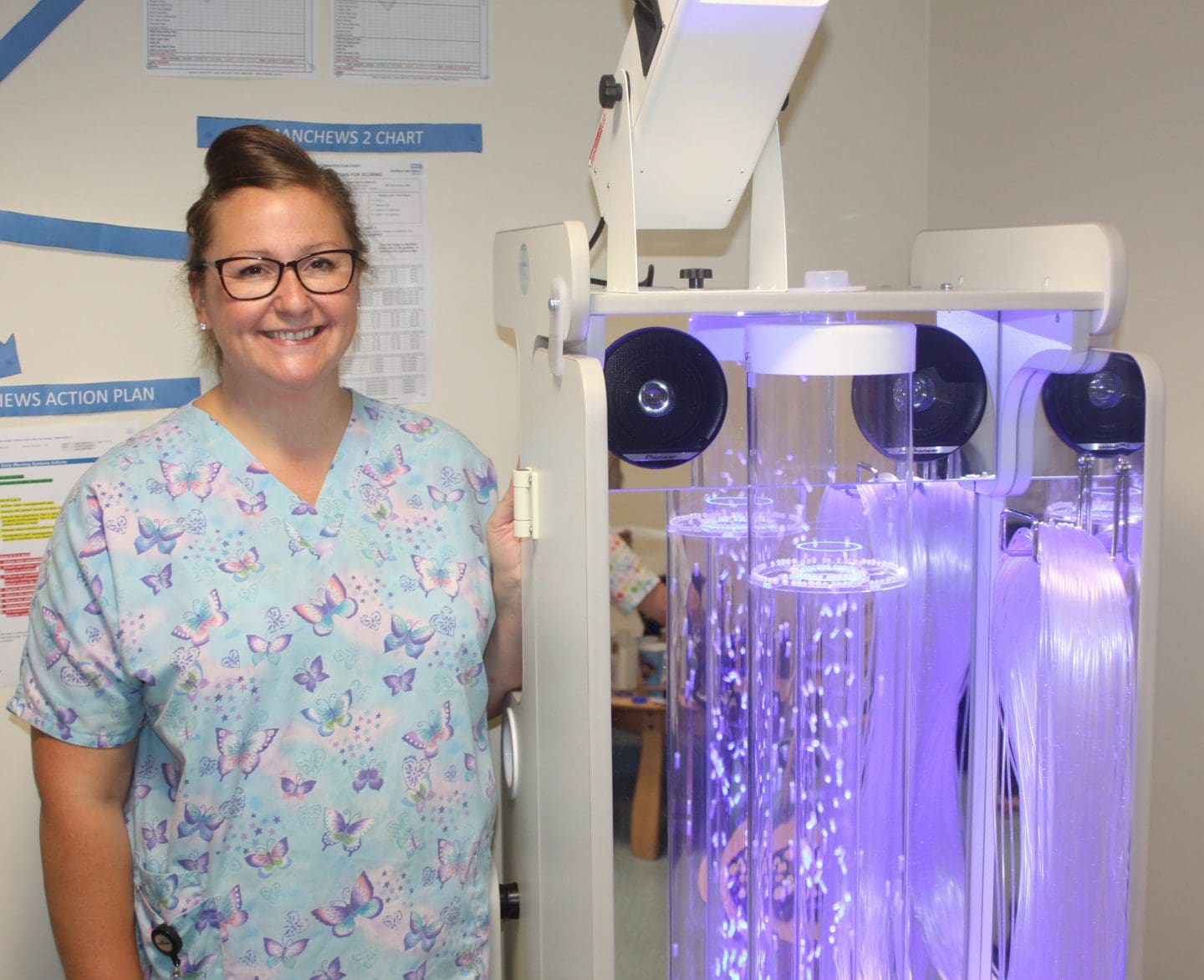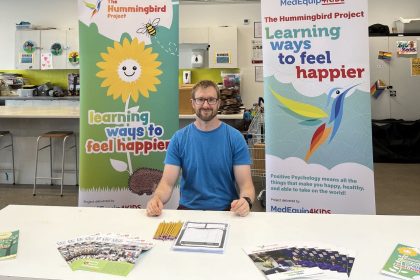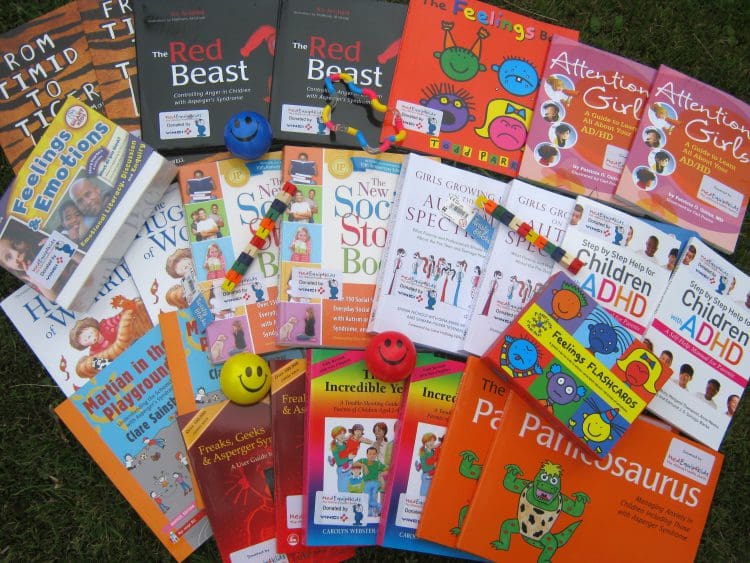
Sensory equipment is known to calm and distract children who are anxious or upset while undergoing or awaiting treatment. The lights and sounds can be particularly soothing for children with special needs. Some hospitals have a dedicated sensory room, but children who are confined to their beds may be unable to access it. These young patients can benefit from access to a Sensory Voyager, a portable sensory studio which can be brought to a child’s bedside. It includes a waterless bubble tube, UV fibre optic strands, and a projector wheel to produce lighting effects and images. Colour control and an MP3 sound system complete the fantastic sensory atmosphere.
We recently provided Sensory Voyagers for North Manchester General Hospital and Royal Oldham Hospital. Families and staff members alike can join in and interact with the Voyagers alongside the young patients, particularly those who are not well enough to visit the existing sensory rooms at both hospitals.
One 13-year-old patient says: “It was the only thing which kept me calm and made me relax before going to theatre.”
One parent said, “When my 3-year-old daughter came back from theatre she was very distressed and I couldn’t calm her down. Play staff brought the unit to us and it worked wonders. Using the colour box made her feel in control again.”
We have agreed to provide similar sensory equipment this year for other hospitals across the North West. If you can help us, please donate online or give us a call on 0161 798 1600. Thank you.












